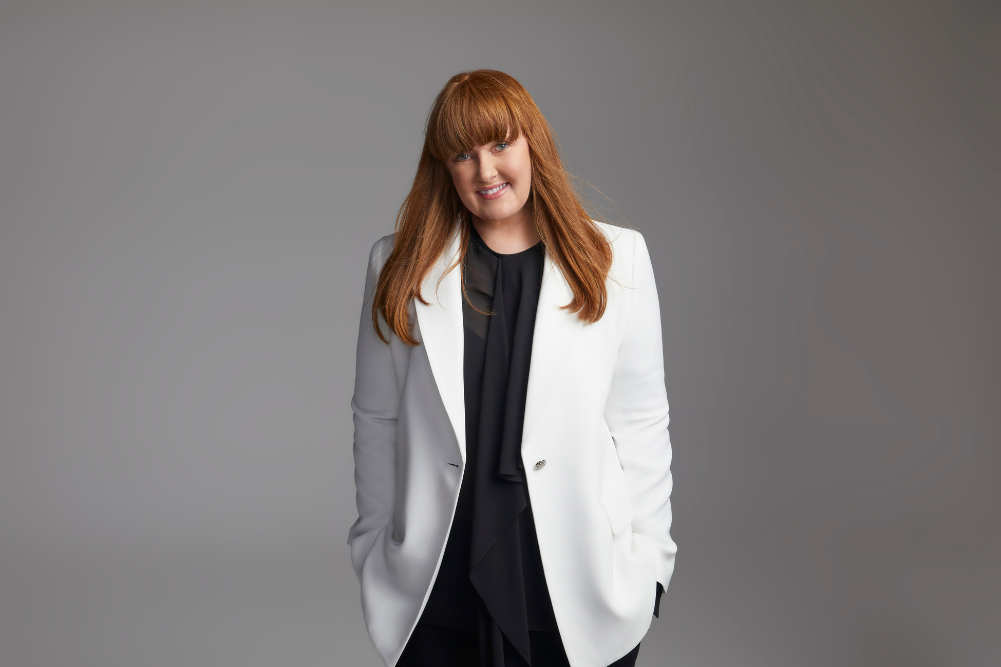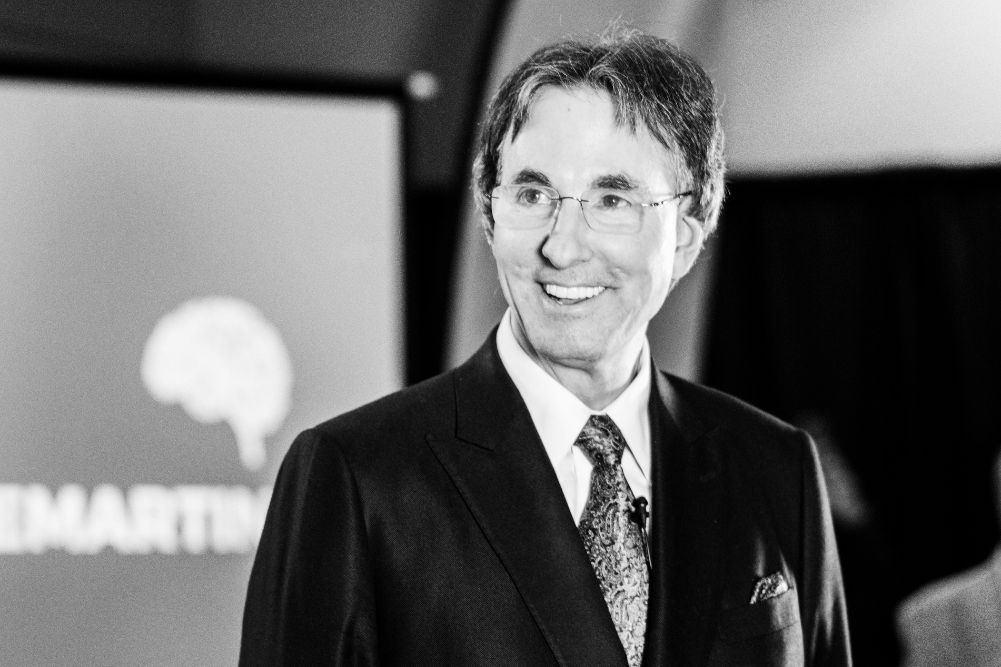Bruce Lipton and the biology of belief
You hear people say it every day, in doctor’s clinics, in restaurants, in the newspaper: “I can’t help it. It’s genetic.” They’re usually talking about a disease in their family, such as breast cancer or mental illness, and they say it with a heavy resignation.
Since the first genetic experiments were conducted over 100 years ago, science and society have become deeply entrenched in the notion that we inherit things because they are “in our genes”. What most people don’t realise is that this concept has been challenged for a long time — 40 years, in fact — by epigenetics, one of science’s most important fields of study, which holds that our genes are determined not by our physical destinies but by our environments.
Revolutionary stem-cell biologist Dr Bruce Lipton has become world renowned for taking the concept of epigenetics one step further. Lipton says, “The meaning of epigenetics is ‘self-empowerment through thought’.”
Radical science
Bruce Lipton has been a radical pioneer since the late 1980s, when his research at Stanford University convinced him that genes and DNA can be manipulated by a person’s beliefs. Lipton’s dismissal of the traditional Newtonian, reductionist view of the body challenged the status quo, opened Pandora’s box and saw him part ways with two major universities.
Today, Lipton has come up trumps. The bestselling author of The Biology of Belief, The Wisdom of Your Cells and Spontaneous Evolution, the humble New York-born scientist is internationally regarded as one of the leading voices of the new biology, not least because he has the gift of explaining complex science in a way everyone can understand.
“We accept that illness is a normal part of living,” he says, “because we look at the biology of the body like a vehicle and we say, ‘Every now and then the brakes fail or the air conditioner breaks; vehicles do that.’
“Here’s the problem: biology teaches that the vehicle is run by a genetic computer and so, if anything’s wrong with the vehicle, it’s something built into the system and we have nothing to do with it. That’s why we’re victims of our own biology. If you don’t know how to drive a vehicle, it’s going to end up in the junk yard faster. We have been programmed that the vehicle drives itself, so if it’s broken, you just sat in the backseat and saw it happen.
“The new biology says you have your hands on the wheel. If you really knew how to drive the vehicle more effectively, how not to stress it — not to drive with one foot on the gas and one foot on the brake at the same time — the vehicle will perform and last much longer.”
Breakthrough
Bruce Lipton began his career as a cell biologist, researching muscular dystrophy and studies employing cloned human stem cells at the University of Wisconsin’s School of Medicine. “I had a regular, conventional life. I wasn’t spiritual; I was doing research in the medical school and teaching medical students,” he recalls.
In 1973, an experimental tissue transplantation technique developed by Dr Lipton (then a professor of anatomy) and colleague Dr Ed Schultz was subsequently employed as a novel form of human genetic engineering.
His big breakthrough arrived in 1982, after examining the principles of quantum physics and how they might be integrated into his understanding of the cell’s information processing systems. Lipton realised that the outer layer of the cell, the membrane, could be likened to a computer chip: the cell’s equivalent of a brain. Between 1987 and 1992, his studies at Penn State and Stanford University’s School of Medicine revealed that the environment, operating though the membrane, controlled the behaviour and physiology of the cell, turning genes on and off. These influences, he was certain, included perceptions and beliefs — hence Lipton’s message that your beliefs, true or false, positive or negative, can affect genetic activity and even alter your genetic code.
“A gene is like a ticker tape with words spread out along a long, single strip,” Lipton explains. “Now, imagine that with a pair of scissors and tape I cut the words and put them in different sequences and change the story. Epigenetics is a molecular mechanism by which perception of the environment can go in and, using scissors and tape, cut the genes apart and reorder them. With epigenetics you can have one gene blueprint but create 30,000 different proteins just by cutting and taping the pieces in different sequences.
“So, what does it mean? That biology is plastic. We can turn it into what our consciousness would like to do because our consciousness is what wields the scissors and the tape.”
Lipton continues: “The thoughts that we have are translated into chemistry by the brain and that chemistry is then introduced into the blood. The blood is the culture medium of the 50 trillion cells in my body. When you change your thoughts and release chemistry in your blood, the cells will do exactly the same thing.”
Beyond genetics
Lipton’s years of controversial discoveries presaged the field of epigenetics, a new model of gene expression. Epi means “above”, so the literal translation of epigenetic control is “control above the genes”. Two major scientific publications derived from Lipton’s studies defined the molecular pathways connecting the mind and body and many subsequent papers by other researchers have since validated many of his concepts and ideas.
“When I first started back in the 70s and my research was coming out, it was the golden age of genes,” Lipton says. “My research irritated a lot of people. I always thought of them as lemmings running off the cliff of DNA and I’m standing there on the side with the results from my stem-cell studies thinking, ‘Oh my God, you’re all going the wrong way.’
“At some point I realised that they marginalised my work because it didn’t conform to their conventional beliefs and I thought, well, they’re not even being scientists. And I just left the system. I realised the message is more important for the average person than it is to argue in the halls of science.”
Lipton’s work has seen him not only transform his own life but become affiliated with some of the world’s largest spiritual and wellness movements, conferences and documentaries in an effort to spread his findings to the masses. As the concept “we are determined by our genes” slowly becomes replaced with “genes respond to stimuli” within the medical industry, media and general population, Lipton’s schedule grows busier than ever, bringing his award-winning medical school lectures to speaking and workshop presentations.
“I’ve been very satisfied because over the years the things I’ve talked about have been fully documented by conventional science,” says Lipton, who has been teaching in non-tenure positions at different universities since 1993.
Understanding how exactly we influence our own genes in real-life scenarios is difficult to understand at first, particularly when the entire premise begins under a microscope. In the laboratory, when genetically identical cells are placed in three different petri dishes and the environment, the culture medium in each dish, is changed, the fate of the cells changes, too. Put simply, different environments bring out different cellular responses — despite the fact all three petri dishes hold the same genes.
“If the environment is influencing the fate of the cells then we can be masters of our lives for the very simple reason that we can regulate our own environment,” Lipton says. But when only five per cent of our lives is run using the conscious mind — and the other 95 per cent is controlled by subconscious beliefs and habits — we may need to turn to various holistic and wellbeing modalities (such as affirmations and Neuro-Emotional Technique) to undergo some serious mental reprogramming.
Reprogramming your DNA
This mental reprogramming is important, Lipton maintains, because the biggest problem with Western society is its victim mentality.
“Data now reveals up to 90 per cent or more doctor visits are all due to lifestyle and stress,” he says. “We believe we’re victims. We give up control of our lives, we become irresponsible, and all the while the biology and the genetics and the behaviour are totally linked to our consciousness.
“Victims [think], ‘Things happened to me; I had nothing to do with it.’ The new biology reveals that we consciously — and subconsciously for that matter — interact with the cells, their behaviour and genetics through the action of our mind. By training the mind we can become master of our own biology and our health.”
Lipton isn’t afraid to speak out strongly against the pharmaceutical industry and its deeply interwoven relationship with the culture of victim mentality: “The United States is one of the sickest of the Western nations and also, in my opinion, one of the dumbest of the Western nations at this time. It’s not an accident — it’s part of programming a change in education processes that actually reject creative courses and only emphasise repetition courses, and the food that we’re given … all of this is leading to a population that is stressed, sick and less intelligent and conforms to exactly what the government was looking for.”
In other words, to quote former British Labour politician Tony Benn, the last thing a government wants “is an intelligent, healthy population, because they’re more difficult to control”.
“When people own that they’re a victim, a couple of bad things happen,” Lipton says. “One is that they become irresponsible — ‘I can’t do anything about it; it’s in my genes so why do I really care?’ — so they have no responsibility over their own health care. Secondarily, when we perceive ourselves as victims, we need someone to rescue us: ‘I’ll pay the pharmaceutical industry to give me a pill to control that gene that is running out of control.’”
This year, Bruce Lipton joined a cast of holistic experts including Marianne Williamson, Dr Bernie Siegel and Paul Chek to appear in The Cure Is …, an independent documentary by LA filmmaker David Scharps. The film had its global release online on November 11, 2012, and deeply resonates with the theme of Lipton’s life work: that all forms of illness begin with a person’s responsibility and control — or lack thereof — over their own thoughts and how, long term, this may impact their reality.
“The most important message of this film is that we have been programmed not to be healthy and not to be intelligent,” Lipton says. “This film [offers] the wisdom that says turn back to your power, let go of your programming. You are more powerful than you can ever imagine and that’s what this world needs right now: to open up people’s mind to their consciousness and the power they actually possess.”
The honeymoon
Lipton also has a new book entitled The Honeymoon Effect, launching in May 2013, which explores what would happen if the world’s population started taking their health and their destinies into their own hands: “If I had seven billion people exercising their self-empowerment, then this planet would actually manifest heaven on earth. My life mission is to get people to wake up, to own the nature of how they control their biology and teach them how they’ve been misprogrammed so they can rewrite these programs and collectively we can turn this planet back into the Garden of Eden.”
With statements like this, it’s no wonder that Lipton was the 2009 recipient of the Goi Peace Award, an honour he shares with other luminaries such as Deepak Chopra and Bill Gates. There’s plenty more plans for world revolution churning in the back of his mind for the coming years, too, including a book that offers a whole new theory of evolution.
“This is a time to say, ‘Wait! I can control my biology! I just have to get the bad negative programs out of the system and once I’m in harmony the biology will also be in harmony,’” Lipton says. “That’s self-empowerment, and that’s what this planet needs right now.”
For more information, visit www.brucelipton.com.
Rebecca Dettman is an author, psychic and spiritual educator. She is the founder of Aurora Circle and www.PsychedInStilettos.com.







